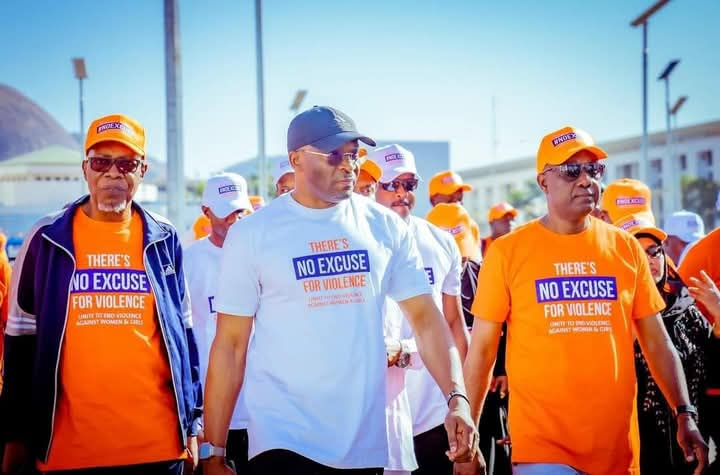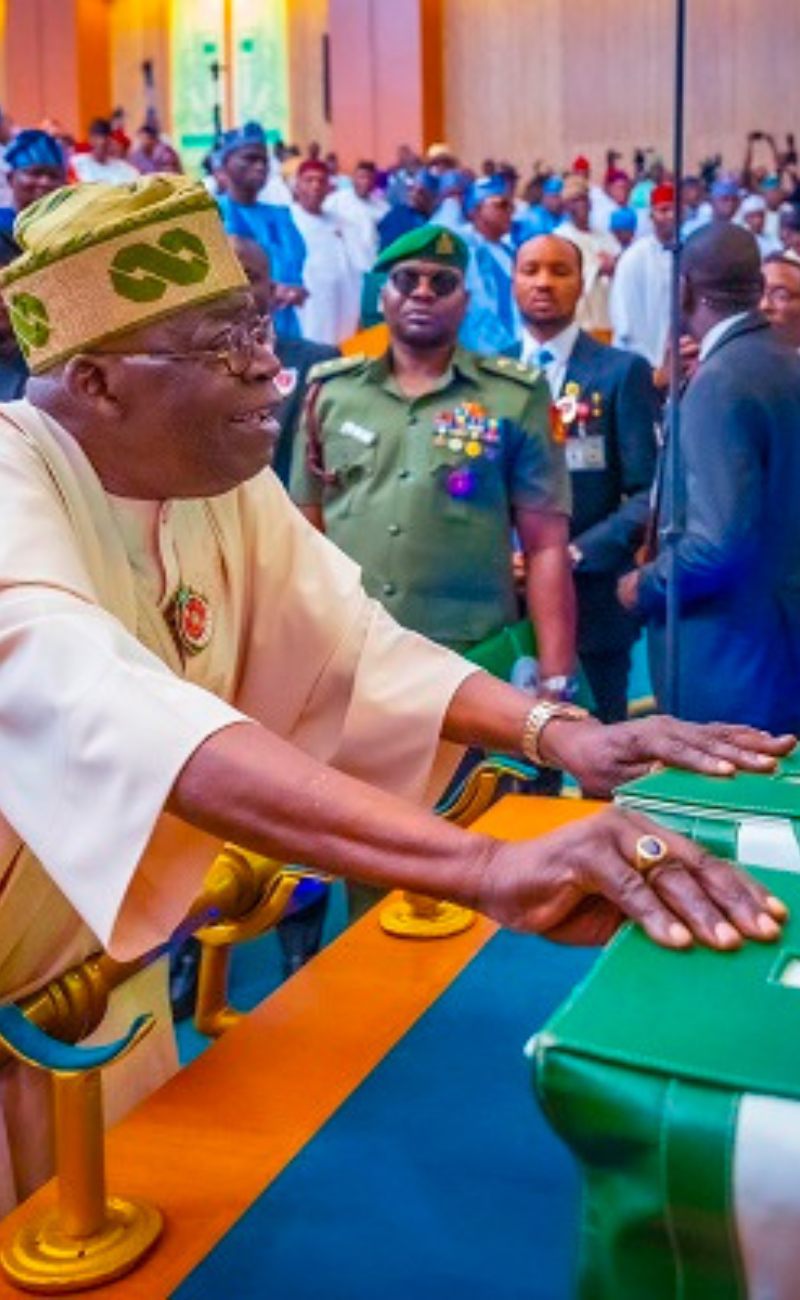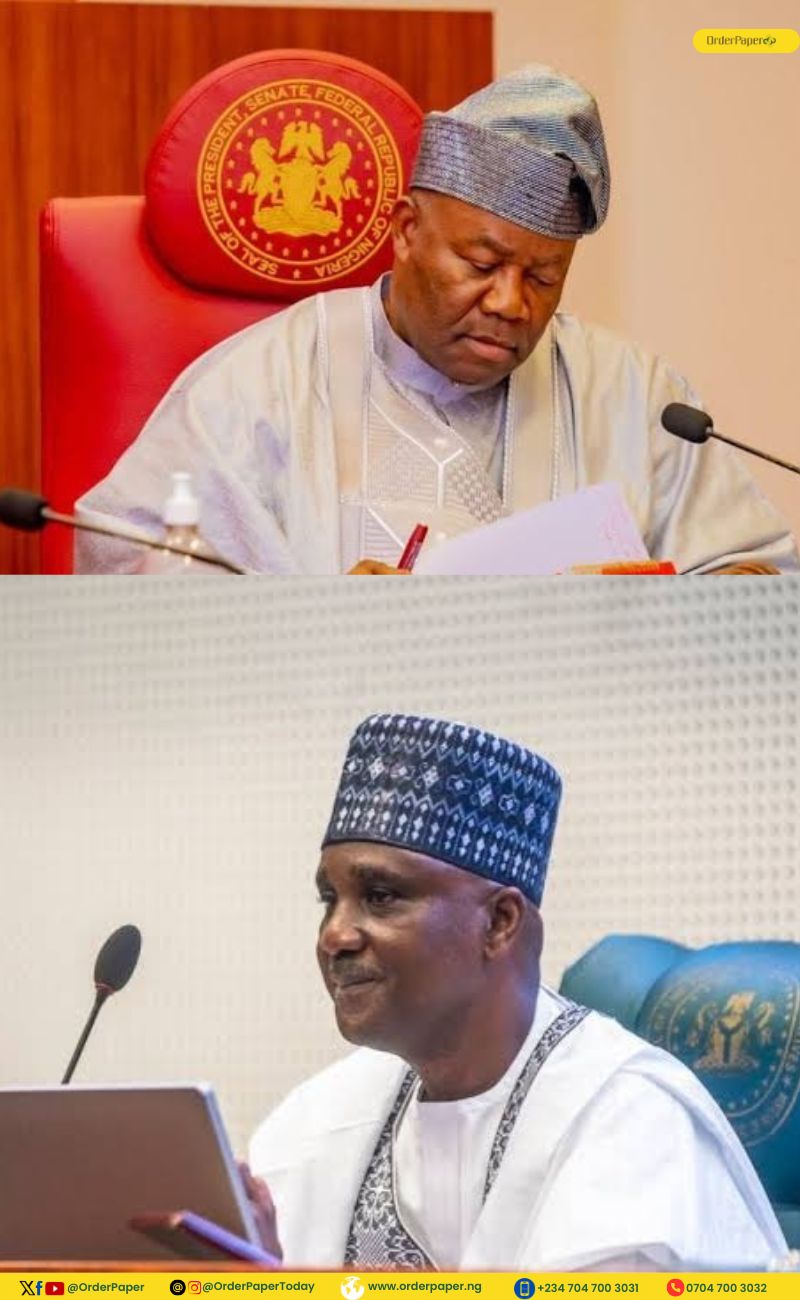
This week’s Gender Equality and Social Inclusion (GESI) tracker reports on the participation of House of Representatives’ members in 16 days of activism and bills on surrogacy and special seats for women and PWDs.

16 Days of Activism
This week started with the 16-day march in solidarity with women to end gender-based violence across the globe. Speaker of the House of Representatives, Rep. Tajudeen Abbas (APC, Kaduna), deputy speaker, Rep. Benjamin Okezie Kalu (APC, Abia) led other members of the House on a solidarity march to support the cause and lend their voices to end gender-based violence in Nigeria.
This year’s theme, “towards 30 years of the Beijing declaration and platform for action: UNiTE to End Violence Against Women,” aligns directly with GESI as it focuses on eliminating violence against a group that faces systemic discrimination—women.
The campaign advocates for the safety and dignity of women and girls, addressing the power imbalances that perpetuate violence. It encourages inclusive policies, cultural shifts, and support mechanisms for survivors.
By raising awareness of the vulnerabilities faced by marginalised groups, such as women with disabilities or those from rural communities, the campaign ensures no one is left behind in the fight against gender-based violence (GBV).
Hence, this march promotes intersectionality, advocating for laws, resources, and programmes protecting women across socioeconomic, and cultural divides.

Special seats for the physically challenged
In the House of Representatives, the Speaker of the House, Rep. Tajudeen Abbas (APC, Kaduna) sponsored a bill -Constitution of the Federal Republic of Nigeria, 1999 (Sixth Alteration) (Special Seats for the Physically Challenged Persons) Bill, 2024. The proposed legislation to create special seats for physically challenged persons is a landmark move for social inclusion and representation.
Viewing it through the GESI lens, the bill will dismantle structural barriers that have historically excluded people with disabilities, providing an inclusive pathway to participation in national decision-making.
Ensuring that women with disabilities are adequately included in the allocation of special seats and also creating structural mechanisms to include physically challenged persons in governance, their voices in policymaking processes will be well represented.
The bill has passed the first reading.

Reproduction technology and surrogacy board
In the House of Representatives, Rep. Uduak Alphonsus Odudoh (PDP, Akwa Ibom) proposed the National Assisted Reproduction Technology and Surrogacy Board (Establishment) Bill, 2024. The bill aligns with GESI principles by addressing gender-specific health and reproductive rights.
This will support women’s reproductive autonomy, particularly those facing infertility challenges, and also provide safeguards for surrogate mothers, ensuring their health, rights, and welfare are protected.
By addressing affordability, accessibility, and ethical concerns, the bill can ensure that assisted reproduction technology and surrogacy services do not exploit vulnerable women while making them available to all eligible groups, regardless of socioeconomic or cultural barriers. This bill also passed its first reading in the House.

Curbing sexual harassment of students
In the upper chamber, the Senate Leader, Bamidele Opeyemi (APC, Ekiti Central), introduced the Sexual Harassment of Students (Prevention and Prohibition) Bill, 2024.
The bill will address the pervasive issue of sexual harassment in educational institutions, which disproportionately affects female students. Reports indicate that many students experience harassment ranging from inappropriate comments and unsolicited advances to coercion for academic favors, commonly referred to as “sex-for-marks.”
Enacting this law will promote gender equity and social justice by establishing robust mechanisms to prevent and address sexual harassment within educational settings and emphasize institutional accountability and provide avenues for redress, ensuring that all students, especially those from marginalized groups, can pursue education free from intimidation or exploitation.
The bill has successfully passed its first reading in the senate.



